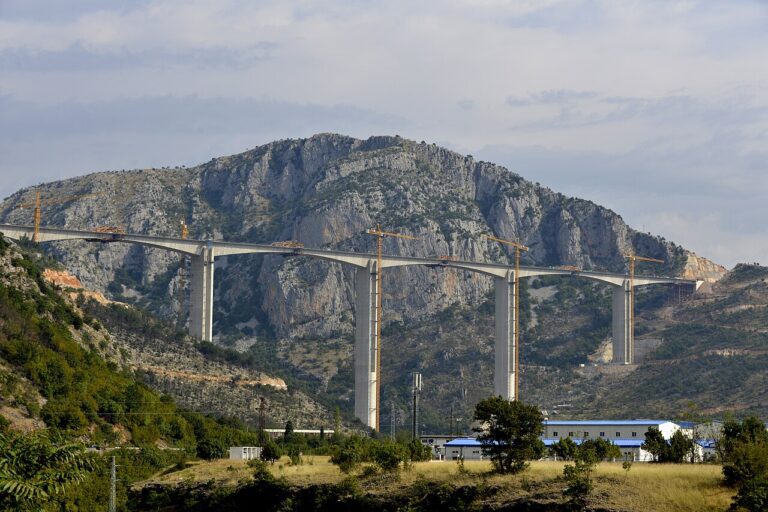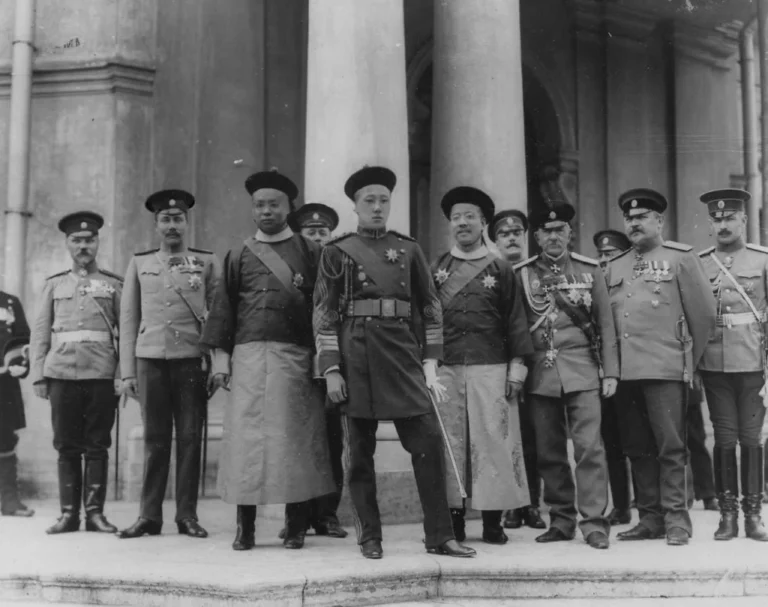
In August, the European Semiconductor Manufacturing Company (ESMC) – a joint venture between the Taiwan Semiconductor Manufacturing Company (TSMC), Bosch, Infineon and NXP – began constructing a €10 billion semiconductor plant in Dresden, Germany. Marking its political significance, the project was inaugurated by German Chancellor Olaf Scholz and the President of the European Commission Ursula Von der Leyen, despite the former’s insistence on the plant’s economic nature. The European Commission has also approved €5 billion in state aid from Germany to support the construction and operation of this plant, which is expected to play a crucial role in enhancing the EU’s semiconductor capabilities under the European Chips Act.
The plant’s focus on automotive chip production is particularly noteworthy, given the crucial role of the automotive sector in European economies as well as the global importance of European automotive chip suppliers, including in China. This presents the EU with a strategic opportunity to strengthen its control over key semiconductor supply chains while increasing China’s reliance on European technology. However, the EU’s relaxation of state aid rules risks fragmenting the internal market by disproportionately benefiting companies from larger member states, which have greater capacity for financial incentives, over those from smaller states, including in Central and Eastern Europe (CEE).
TSMC and Automotive Chips: A Winning Formula?
The EU’s push to build up its domestic semiconductor capacities intensified during the COVID-19 pandemic when the global shortage of automotive chip supplies underscored the world’s dependence on Taiwan for this critical technology. Governments worldwide have since urged TSMC – the world’s largest contract chipmaker – to establish semiconductor manufacturing plants known as foundries or fabs within their borders. And while initially hesitant, TSMC has seemed to listen to its global customers, with the construction of its European plant following a similar trajectory to its ventures in the US and Japan. This is despite the rising concerns in Taiwan about offshoring of its semiconductor manufacturing or indeed the island nation’s over-reliance on semiconductors for its economic growth.
The plant is, however, good news for the EU, as it aligns with its broader goals of strategic autonomy and tech sovereignty by bolstering the resilience and sustainability of its critical material and technology supply chains. Notably, while TSMC competes with other semiconductor giants from countries like the US, South Korea and increasingly China in producing cutting-edge 2-3 nm chips, European firms like Infineon, NXP and STMicroelectronics dominate the automotive chip market reliant on legacy chips of 20 nm and above. This is the case especially when it comes to key components like sensors, power semiconductors, and microcontrollers, which use older generation manufacturing processes; microcontrollers require 20-40 nm fabrication processes while power semiconductors and sensors 90-180 nm processes.
This dominance provides the EU with strategic leverage, especially as Chinese electric vehicle (EV) manufacturers, which are competing on the European market, rely heavily on imports of automotive chips, including from European suppliers. At the same time, it is important to note that due to the importance of the Chinese market for their products, all three of the leading European automotive chipmakers maintain significant investments in China, including joint ventures with Chinese suppliers. The EU-China interdependencies are further increased by the significant role of Chinese suppliers in the European semiconductor production facilities in the Global South.
State Aid and Risks to Internal Market Cohesion
To boost the global competitiveness of European companies while accelerating the bloc’s green and digital transitions, the EU has been relaxing its state aid regulations ever since the Russian invasion of Ukraine. The Temporary Crisis and Transition Framework (TCTF) introduced by the soon-to-be-former Competition Commissioner Margrethe Vestager – including its rather controversial clause on matching financial incentives offered by foreign states – is just one of several EU schemes that are now available to further ease restrictions on state subsidies, which have already been eased by the 2023 amendments to the General Block Exemption Regulation (GBER).
These developments have been criticized by several smaller member states, including the Czech Republic and Poland, which have advocated for a return to a stricter state aid regime. This is based on the argument that the increasing use of national subsidies by larger member states with greater fiscal capacity like Germany and France risks undermining the cohesion of the internal market. Vestager herself has warned about the risk of unequal subsidy distribution, a concern echoed by former Italian Prime Minister Enrico Letta in his report on the single market. Preceding the hotly debated report by Mario Draghi on the bloc’s competitiveness, the Letta report emphasized the need for industrial strategy, while making an important distinction between a coherent EU-wide strategy and fragmentation-prone subsidy policies of individual states.
Opportunities for CEE
Not only have several CEE countries criticized the mounting use of subsidies by great European powers, but the Taiwan-supportive members like Czechia and Lithuania have expressed disillusionment with TSMC’s decision to locate its European foundry in Germany. At the same time, their embeddedness in German supply chains presents several opportunities for the CEE region. This has been implied by the Secretary-General of the National Security Council and former Minister of Foreign Affairs Joseph Wu during his recent trip to Prague, with the Secretary-General of the Executive Yuan Kung Ming-hsin further reiterating Taiwan’s intention to build an industrial cluster around Dresden and Prague.
Moreover, the often-criticized emphasis on human capital in the existing chip-related agreements between Taiwan and CEE – with the most recent agreement focused on establishing semiconductor labs at Slovak universities and research institutes – may still prove beneficial for the CEE countries. This is particularly relevant given that the shortage of skilled labor has been identified as a key factor behind the significant delays in TSMC’s long-anticipated Arizona plant in the US.
Written by
Dominika Remžová
DominikaRemzovaDominika Remžová is a China Analyst at AMO, specializing in Chinese economy and industrial policy, supply chains, critical raw materials, electric vehicles and, more generally, Chinese foreign policy. In the past, she contributed to Taiwan Insight and The Diplomat, among others. Dominika is pursuing her PhD in Political Science and International Relations at the University of Nottingham. She earned her Master's degree in Taiwan Studies from the School of Oriental and African Studies (SOAS) in London and her Bachelor's degree in Chinese Studies from the University of Manchester.


